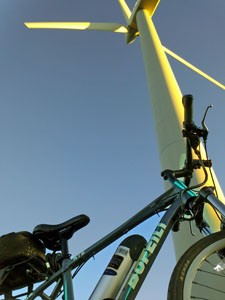
eBikes (also known as Pedelecs) are bicycles with an electric motor to assist pedalling. A survey of CAN members found that over half the respondents (52%) had considered buying an eBike, and 14% owned an eBike.
A frequent reason for buying an eBike included the need to ride up hills but also a desire to ride faster, have more power to carry loads, and to overcome issues from health or disability.
Many members commented that eBikes were a way to attract new cyclists, and provide an alternative to using cars.
- "I see eBikes as allowing an extra segment of the population the opportunity to bike where they otherwise wouldn't/couldn't"
- "The wider use of e-bikes the better. Let's get people back on bikes and out of cars"
- "e-bikes have huge potential to increase the popularity of cycling in New Zealand"
- "they will be the catalyst for tipping cycling back to being acceptable and safe - whilst also making cycling a viable transport option once again"
- "support any use of eBikes that shifts transport patterns away from higher carbon emission modes such as cars."
- "anything that gets people out of their damned cars has gotta be a good thing!"
- "they can get people riding who would otherwise be driving a car."
- "E bikes will allow more ages and abilities to join the revolution."
eBikes are legally treated as bicycles in NZ, so long as the motor has a power of 300w or lower. However there are potential issues to address, such as speed, age of users, and appropriate routes. 70% of respondents supported restricting eBikes speed - in the EU eBikes power cuts out at 25km/hr; although some members pointed out that in NZ conditions, merging with traffic needed slightly higher speeds, e.g. 30km/hr. 60% supported an age restriction on using eBikes.
While the majority felt that eBikes should be allowed on routes shared with walkers (for example the Wellington Waterfront)(80%), and on wide off road trails such as the Otago Rail Trail (88%), there was less support for eBikes on single track mountain bike trails (40%) and routes through natural areas such as the Heaphy (43%).
The survey had a 30% response rate, relatively high for this kind of survey. Findings from the survey will help develop a CAN policy on eBikes.
